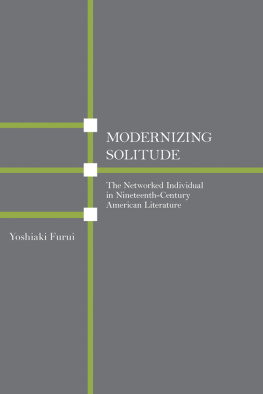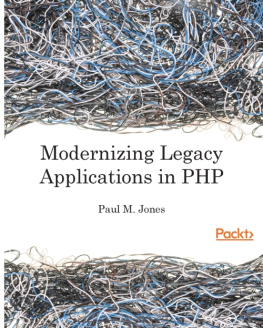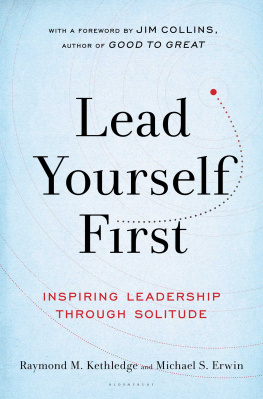Furui Yoshiaki - Modernizing Solitude
Here you can read online Furui Yoshiaki - Modernizing Solitude full text of the book (entire story) in english for free. Download pdf and epub, get meaning, cover and reviews about this ebook. publisher: University of Alabama Press, genre: Romance novel. Description of the work, (preface) as well as reviews are available. Best literature library LitArk.com created for fans of good reading and offers a wide selection of genres:
Romance novel
Science fiction
Adventure
Detective
Science
History
Home and family
Prose
Art
Politics
Computer
Non-fiction
Religion
Business
Children
Humor
Choose a favorite category and find really read worthwhile books. Enjoy immersion in the world of imagination, feel the emotions of the characters or learn something new for yourself, make an fascinating discovery.
- Book:Modernizing Solitude
- Author:
- Publisher:University of Alabama Press
- Genre:
- Rating:4 / 5
- Favourites:Add to favourites
- Your mark:
- 80
- 1
- 2
- 3
- 4
- 5
Modernizing Solitude: summary, description and annotation
We offer to read an annotation, description, summary or preface (depends on what the author of the book "Modernizing Solitude" wrote himself). If you haven't found the necessary information about the book — write in the comments, we will try to find it.
Modernizing Solitude — read online for free the complete book (whole text) full work
Below is the text of the book, divided by pages. System saving the place of the last page read, allows you to conveniently read the book "Modernizing Solitude" online for free, without having to search again every time where you left off. Put a bookmark, and you can go to the page where you finished reading at any time.
Font size:
Interval:
Bookmark:

MODERNIZING SOLITUDE
The University of Alabama Press
Tuscaloosa, Alabama 35487-0380
uapress.ua.edu
Copyright 2019 by the University of Alabama Press
All rights reserved.
Inquiries about reproducing material from this work should be addressed to the University of Alabama Press.
Typeface: Bell MT
Cover design: David Nees
Library of Congress Cataloging-in-Publication Data
Names: Furui, Yoshiaki, 1982 author.
Title: Modernizing solitude: the networked individual in nineteenth-century American literature / Yoshiaki Furui.
Description: Tuscaloosa : The University of Alabama Press, [2019] | Includes bibliographical references and index.
Identifiers: LCCN 2018026897| ISBN 9780817320065 (ISBN) | ISBN 9780817392185 (e-ISBN)
Subjects: LCSH: American literature19th centuryHistory and criticism. | Solitude in literature. | BISAC: LITERARY CRITICISM / American / General.
Classification: LCC PS217.S63 F87 2019 | DDC 810.9/35109034dc23
LC record available at https://lccn.loc.gov/2018026897
This book about solitude was not written alone. The writing of it was made possible by a network of teachers, friends, and family across the Pacific between the United States and Japan. It was written, to use my own phrase, in networked solitude.
At Emory, I am particularly grateful to Benjamin Reiss for the generous support and vigorous guidance he gave me by reading through and commenting on a countless number of drafts. This project benefited from his sharp intellect and remarkable insight, which I greatly admire. The books foundations were also established through dialogue with Barbara Ladd, who initiated me into the practice of bringing historical insight into my reading of literature, and Jonathan Prude, who introduced me to the study of American history as a discipline. I was also blessed to be acquainted with Shoshana Felman, from whom I learned an important lesson: literature should be not subservient to theory. While widely recognized as a literary theorist, she is the best close reader of literature Ive ever known. I would also like to thank the students of my American Solitude class for their inspiration. It is I, the teacher, who learned a great deal from them. I am grateful for the generous funding from the Laney Graduate School of Emory University, the Fulbright Scholarship Program, and the Yoshida Scholarship Foundation.
I am equally indebted to David M. Henkin at UC Berkeley for his generosity in taking the time to comment on an early version of the manuscript. Without his groundbreaking scholarship, some of this book could not have been written. Special thanks also go to John L. Bryant, Samuel Otter, Elizabeth Renker, and Elizabeth Schultz for their invaluable comments on my previous work.
I would like to express my sincere gratitude to my mentors in Japan who trained me as a literary scholar both at the University of Tokyo and Waseda University: Takaki Hiraishi, Motoyuki Shibata, Tomoyuki Zettsu, Koichi Suwabe, Masaki Horiuchi, and Koji Toko. What I learned from each of them constitutes the basis of my literary analysis. Their teaching ingrained in me the importance of reading and writing aboutliterature with respect, love, and passion. For the publication of the monograph in the United States, I must single out Tomoyuki Zettsu and thank him again for his continuous moral support throughout the entire journey.
Since I returned to Japan, I have been fortunate to be part of a vibrant academic community. I offer sincere thanks to Michiko Shimokobe and Takayuki Tatsumi for their inspiration and guidance. In addition, I want to acknowledge the generosity of Michiko Amemiya, who read through the entire manuscript with remarkable care and insight. I am also most grateful to my former and current colleagues at Aoyama Gakuin University and Rikkyo University for helping me finish this project.
Parts of this book have appeared previously in scholarly journals. Chapter 1 was originally published in Texas Studies in Literature and Language 58, no. 3 (2016). Portions of chapter 3 appeared in Leviathan: A Journal of Melville Studies 19, no. 2 (2017). I am grateful to the University of Texas Press and the Johns Hopkins University Press for permission to reprint my previous work.
I have been most fortunate to work with the staff at the University of Alabama Press: Dan Waterman, who first saw promise in my project; Joanna Jacobs, who shepherded the project; and Jessica Hinds-Bond, who helped clear up my writing. In preparing the final manuscript, I greatly benefited from the detailed and sharp comments of the anonymous reviewers. During the final production process, I had the honor to be awarded the Fukuhara Prize by the Fukuhara Memorial Fund for the Studies of English and American Literature, which assisted in the completion of the book. This work was also supported by JSPS KAKENHI Grant Number 18K12324.
Finally, my greatest debt is to my family for supporting me with patience and love. I wish to thank my mother, Emiko Furui, for her understanding and steadfast encouragement. I owe my deepest gratitude to Mirai and Emily, both of whom were by my side through the entire process of writing this book, both in the United States and Japan.
Time and space are annihilatedthis phrase was constantly on the lips of Americans throughout the nineteenth century to express their wonder at a series of novel means of communications media and technologies. In 1844, noting Samuel F. B. Morses demonstration of the electric telegraph, the Baltimore Sun reports, Time and space has been completely annihilated. It is one of the greatest historical ironies that at a time when the nation was experiencing a political disunion that would result in the Civil War, it simultaneously saw the flourishing of the means of unity on an unprecedented scale.
Such jubilant celebrations of the annihilation of time and distance, manifested throughout the nineteenth century, are indicative of the strong human desire to annihilate the experience of aloneness: by incessantly devising novel ways of rapid communication, nineteenth-century Americans sought to eliminate a painful sense of being separated from those with whom they wished to connectfamily, friends, and loved ones. By attending both to the developing media environment of the period and to a human desire for connection as its driving force, this book examines the concept of solitude in nineteenth-century American literature. Despite the rapid connectedness brought on by the revolution, Each of these authors explores multifaceted aspects of solitude, presenting the concept not as monolithic but as amenable to various interpretations.
In situating solitude in the historical context of the communications revolution, I have chosen to examine authors and fictional characters such as Henry David Thoreau, who describes his two years in a solitary cabin in Walden (1854); Harriet Jacobs, who suffers seven years of confinement in a small garret in Incidents in the Life of a Slave Girl (1861); the titular character of Herman Melvilles Bartleby, the Scrivener (1853), who resists any form of communication by repeating I would prefer not to; John Marr in Melvilles collection of poems John Marr and Other Sailors (1888), who experiences utter loneliness in the frontier prairie; Emily Dickinson, who led a solitary life through most of her adulthood and published few poems; popular stories by and about female telegraph operators, who relied on online communication to deal with their senses of confinement and loneliness; and yet another female operator in Henry Jamess In the Cage (1898) who seeks to overcome a class barrier through the telegraph. Among a plethora of nineteenth-century authors who meditate on solitude, these specific figures are chosen for analysis because they voice their experience of solitude within the newly emergent communications environment in unique ways. My contention is that, paradoxically speaking, the novel sense of connectedness engendered by the revolution created an equally new sense of disconnectedness. In other words, this book looks at the other side of the communicationsrevolution. While offering a utopian vision of unity on both national and personal levels, the new possibilities of communication also invoked anxiety, ambivalence, and skepticism with regard to connectivity in the literary imagination of the American authors. Whereas historians and literary critics have studied the new sense of connectedness during the communications revolution,
Font size:
Interval:
Bookmark:
Similar books «Modernizing Solitude»
Look at similar books to Modernizing Solitude. We have selected literature similar in name and meaning in the hope of providing readers with more options to find new, interesting, not yet read works.
Discussion, reviews of the book Modernizing Solitude and just readers' own opinions. Leave your comments, write what you think about the work, its meaning or the main characters. Specify what exactly you liked and what you didn't like, and why you think so.













